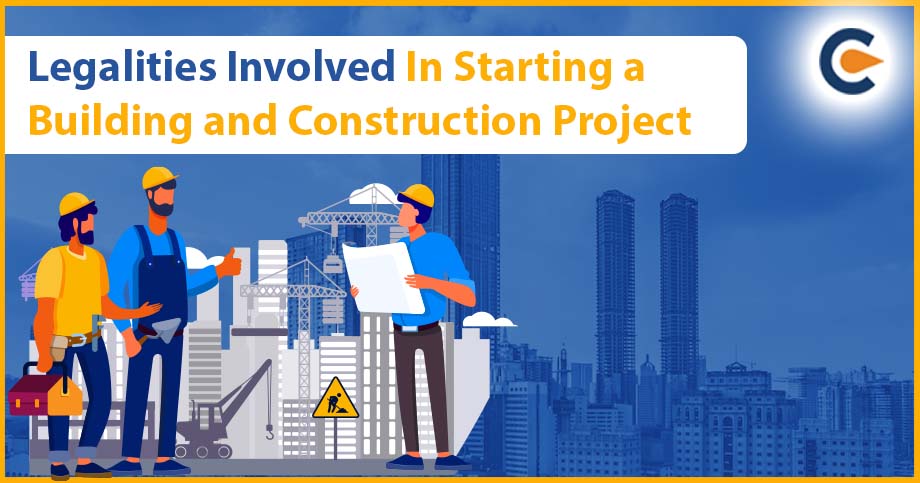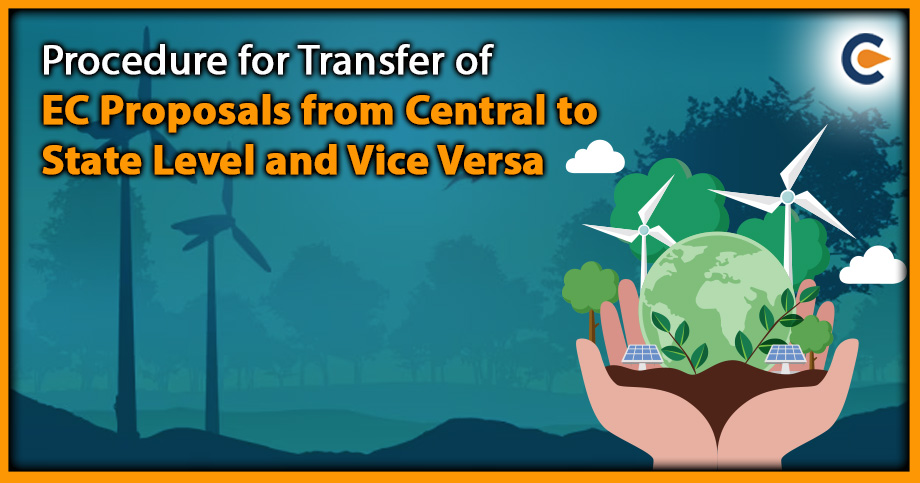In India, building and construction projects are expanding rapidly. After agriculture, construction is India’s largest industry sector. It is one of the most important contributions to India’s economic growth. It is the country’s second-largest employer, employing approximately 40 million people. Furthermore, the industry’s growth depends on several variables: population expansion, growing urbanisation, and increased disposable income. This has placed the building and construction project sector in a favourable position today and in the following decades. Furthermore, the need for housing, construction projects, and so on will continue to rise. India is also predicted to be the third-largest building market by 2025. The initiative to construct smart cities has significantly increased due to the relevance of this industry. Presently, the construction industry accounts for 8% of India’s GDP, which is predicted to have a leap in the upcoming time.
Legalities Governing Construction Companies
Various Legalities must be considered while starting and managing a construction firm. Construction businesses work on various projects, large and small, requiring some form of regulation and administration. Furthermore, India’s building sector heavily relies on the legal system to complete the project, including contracts, incorporation, taxation, etc. Furthermore, the key laws that govern and regulate the operations of construction projects in India, are –
The Companies Act, 2013
This act primarily comprises “Incorporation of a Company,” “Management of a Company,” and the regulations involved per se. Before beginning a construction project, a legal body must be formed with the essential disclosures, names, paperwork, etc. Moreover, any company in India is formed/registered in accordance with the rules of the Companies Act 2013. In this instance, a building and construction project can be registered similarly.
When registering for a building and construction project, the following factors must be considered:
Just two types of corporations can be registered under the Companies Act
- Private Company And
- Public Companies.
A building company can be both private and public. Any of the options can be considered when beginning a construction project. Similarly, most construction projects are often privately held due to the simplicity of management and registration of private companies.
- Reservation of Name
In this step, a name is selected for the project, which gets finalised after the approval from the Registrar within 20 days of the application.
Forming of Object
The object of the project is formed by preparing the Memorandum of Association (MoA),’ which entails the project’s operations, aims and potential scope.
Filing of Application
In this step, the documents are filed with the Registrar within whose jurisdiction the building and construction project will be functioning.
Certificate of Application
The Registrar issues the certificate after inspecting all the paperwork and completing all relevant legal requirements and fees payment. The Registrar will also offer a CIN (Corporate Identification Number) as the project’s unique identifier.
Indian Contract Act of 1872
The Indian Contract Act of 1872[1] shall govern and enforce all contracts relating to the project. When a construction business begins on a project, it enters into many contracts. This contract may be entered into between two construction companies, a state or federal government, or a buyer. The building contracts will be examined further as per the project’s functioning and requirements.
The Goods and Service Tax Act, 2017
All building and construction projects are subject to taxes. The 2017 Goods and Services Tax has published new standards and rates for building contracts and projects.
Regarding building and construction projects, the GST rates are as follows:
- For the construction of buildings, complexes, civil structure or a part including a complex or building intended for sale to a buyer, the GST rate is 18% with full input tax credit (ITC) available on inputs and input services.
- For works contract services such as maintenance, repair, renovation, or alteration of an existing structure, the GST rate is also 18%, with full ITC available on inputs and input services.
Getting Ministry Of Environment and Forests Permissions and Certifications (NOCs)
Environmental permissions must be obtained before a building project can begin. The Ministry of Environment Projects issues this environmental clearance (EC). Every project larger than or equal to 20,000 square metres requires environmental approval. Furthermore, every township or area development project spanning more than 50 hectares requires approval.
If the project is less than 20,000 square metres or 50 hectares, the EC will not be required; however, the NOC/approval of the State Pollution Control Board, Local Municipal Committee/Panchayat, Approval of Fire Safety Department, Approval of the Aviation Department, and if the project is in a forest area, approval of the regional office of the Ministry of Environment and Forest will be required.
Construction Contracts
Several legal procedures and deals will occur before a building project starts. An example of this is Construction Contracts. A construction contract is also formed between the employer and the contractor before the start of the project. A construction contract, sometimes known as a “work contract,” is the legal agreement between a contractor and an employer to build assets.
There is no standard type of building contract in India. Nonetheless, several regularly used contracts are issued by the International Federation of Consulting Engineers, the Institute of Civil Engineers, and the Indian Institute of Architects. The following are some of the typical types of contracts encountered in the construction industry:
EPCs (Engineering, Procurement, and Construction Contracts)
The EPC contract is the most popular type of contract in the construction business. Similarly, it establishes a contractual connection between the contractor and the employer by transferring the construction risk and a basic design to the contractor. Also, this increases work efficiency and risk management, making it the best option for contractors and company owners. It is also the most popular type of contract in the building business.
Turn-Key Contracts
This type will also be widely used in the building industry. In this case, the employer engages a contractor to plan, develop, and build a building and construction project within a particular deadline. The contractors only need to “turn a key” to finish the job. Furthermore, this is useful since the project’s completion procedure is quick and efficient. It is also commonly observed in large-scale undertakings/industries.
PPP (Public, Private, Partnership)
This is where the government, a statutory entity, or a government-owned corporation engages in a contractual partnership with a private entity. There are various forms of PPP contracts, including: –
- Build-Operate-Transfer (BOT), under which the private enterprise is responsible for finance, building and construction project, and operations before the government takes ownership.
- Build-Own-Operate-Transfer (BOOT) means that the private partner completes the construction project for which the concession grants were granted.
- Build-Transfer-Operate (BTO) The private partner will allow the facility to run for a set period after the completed infrastructure is transferred to the state.
- Build-Own-Operate (BOO), where the private sector owns the assets. In addition, the private partner constructs, designs, owns, runs, and maintains the asset.
Importance of EIA Notification, 2006 for Building and Construction Project
The EIA Notification, 2006[1], applies to a wide range of projects, including building and construction projects. However, not all building and construction projects require an EIA process. The EIA Notification, 2006 classifies building and construction projects based on their size and capacity and the environmental impact they are likely to have.
For building and construction projects, the EIA Notification, 2006 requires that projects that exceed certain thresholds undergo a complete EIA process. These thresholds include:
- An EIA is mandatory for projects with built-up area of more than 20,000 square meters or with a plot area of more than 50,000 square meters.
- For projects with a built-up area of more than 1,50,000 square meters or a plot area of more than 1,50,000 square meters, a full EIA process is mandatory, including public consultation and environmental clearance from the MoEFCC.
Taxation Laws: Contracts in building projects are classified as “work contracts” under the Goods and Services Tax Act of 2017. Moreover, work contracts are defined as contracts for the building, construction, erection, installation, fitting out, fabrication, and so on of immovable property alone. Also, this statute recognises labour contracts as a service provider.
Conclusion
Starting a construction firm currently takes a lot of work. It has various legal elements that should be considered. Furthermore, appropriate counsel and support make establishing a construction firm easier. Similarly, registering a construction firm with infrastructure in a particular place helps the company build a distinct brand and aids its success. Furthermore, contractual agreements for projects serve to secure the company’s interests and prevent it from future obligations. As a result, focused legal counsel and assistance are beneficial in all these areas. Overall, working with a qualified legal team is essential to ensure that all legalities are adequately addressed and that the building and construction project is completed in compliance with all relevant laws and regulations.
Also Read:
Overview Of EIA For Man-Made Fibre Manufacturing
How To Get Green Building Certification In India?
Moef&CC Guidelines On EIA For River Valley Projects











